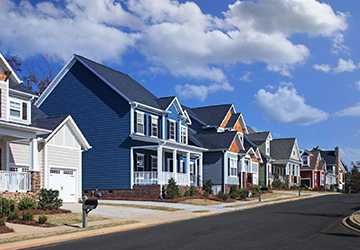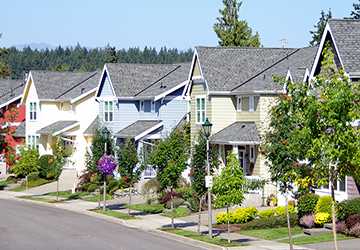How to Use Real Estate Data to Find the Best Neighborhoods
Author: Sophie Kihm
Finding a new home can be an exciting and overwhelming experience, especially if you are new to the area. But thanks to the wealth of online real estate data, you can decide which neighborhoods are best for you and your family. This post is about using property data to find the best setup for your next home.

Understanding Real Estate Data
Real estate data can be invaluable when buying a home because it provides insight into the local housing market. Analysis of average home prices, crime rates, and school district ratings can help you identify the best neighborhoods for your search.
Armed with this information, you can make an informed and informed decision on where to invest and find your ideal place to live. When evaluating real estate data, remember to consider your personal preferences and lifestyle to ensure you find a neighborhood that suits your needs.
Points to remember
● Real estate data includes information about the housing market, such as average house prices and crime rates.
● Analyzing this data can help you make an informed decision about where to buy a home.
● Consider your preferences and lifestyle when evaluating real estate data to find the perfect neighborhood.
Find the best neighborhoods with real estate data
Here are a few steps to using real estate data to find the best neighborhood for your next home: Start with your budget and lifestyle needs, research property values and trends in potential areas, check local amenities and schools, and talk to a highly valued community working together to rate Realtors Realtors will help you with your search.
Determine your budget
Before looking for the perfect location, you must check your finances and determine how much you can afford for a new home. This will help you focus your search on neighborhoods within your price range. Find out the average home prices in the area you're considering to see if they fit your budget. This saves you time and frustration as communities beyond your financial means will be eliminated.
Research crime rate
Safety should always be a top priority when looking for the best neighborhood. No one wants to live in an area with high crime, so researching neighborhoods with low crime is essential. Several websites, such as NeighborhoodScout or CrimeReports, provide information on crime rates in specific areas. By doing your due diligence and researching crime rates, you can find a safe neighborhood to give you and your family peace of mind.
Main points:
● When looking for accommodation, safety must always be the number one priority.
● Research crime rates using sites such as NeighborhoodScout or CrimeReports.
● Look for neighborhoods with low crime rates to keep your family safe.
View School Ratings
School district ratings are essential when buying a home if you have or plan to have children. The quality of education in your local school district can significantly impact your child's future. Therefore, it is essential to do your research before making a decision.
Sites such as GreatSchools.org can provide information on school ratings in your area of interest, including test scores, student-teacher ratios, and parent ratings. This information can help you determine the best school district for your child's needs.

Look at the walking ability value
Neighborhoods with high walkability scores are worth considering if walkability is important to you. These ratings feel proximity to public transport, shops, and restaurants, making getting around without a car easy. You can use sites like Walk Score to find neighborhoods with high walkability ratings and choose a place that fits your lifestyle. Keep in mind that walk ratings may vary by region. Therefore, it is essential to research before making your final decision.
Main points:
● If the walking distance to shops and amenities is essential to you, consider the walkability rating
● Sites like Walk Score can help you find neighborhoods with a high Walk Score
● Remember that walkability ratings may vary from neighborhood to neighborhood. So research is important
Consider commute time
When looking for a new place to live, it's essential to consider the daily commute to work. Commute time can have a significant impact on your quality of life. So it's vital to choose a town with a reasonable commute time. Look for areas near major highways or public transportation to make your daily commute easier. You can also use online tools like Google Maps or Waze to estimate commute times during rush hour. By considering commute times when choosing a neighborhood, you can ensure your daily life is as stress-free as possible.
Some key points to consider when choosing a neighborhood based on commute time are:
● Look for neighborhoods near major highways or public transportation
● Use online tools like Google Maps or Waze to estimate rush hour commute times
● Before deciding where to live, consider how long you are willing to commute
Research the housing market
Finally, explore the local real estate market for prices and trends. Sites such as Zillow and Redfin can provide you with this information. Look for areas where real estate prices rise, which signifies a healthy housing market.
Real estate data can help you find the best neighborhoods for your home purchase. Here are some key points to keep in mind:
● Real estate data includes average home prices, crime rates, school district ratings, and walkability ratings.
● Set your budget before you start your search and narrow down the neighborhoods that fit your price range.
● Learn about crime rates and school district ratings to keep your family safe and educated.
● Find neighborhoods with easy access to major highways or public transportation to allow time for your commute.
● Use sites like Zillow and Redfin to research the local real estate market and look for areas where prices rise.
You can find the perfect neighborhood for your next home by analyzing real estate data and considering your preferences.







